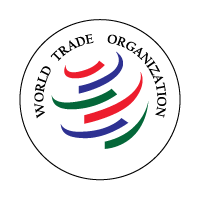 [ictsd.org] WTO members reviewed last week a series of recommendations by a UN panel aimed at supporting access to medicines, debating in particular the report’s findings relating to trade and intellectual property rights.
[ictsd.org] WTO members reviewed last week a series of recommendations by a UN panel aimed at supporting access to medicines, debating in particular the report’s findings relating to trade and intellectual property rights.
The discussions took place under the Trade-Related Aspects of Intellectual Property Rights (TRIPS) Council, which is the WTO body that administers the TRIPS Agreement. The 8-9 November meeting was chaired by Ambassador Modest Jonathan Mero of Tanzania.
Balancing innovation and access
According to Geneva sources, the September report by the UN Secretary-General’s High-Level Panel on Access to Medicines took up a significant part of the WTO discussions, with members ultimately deciding to continue reviewing its recommendations at their next meeting in February 2017.
The panel was convened by Secretary-General Ban Ki-moon last year in a bid to examine ways for overcoming discordance in policy governing health technologies and the intersection between trade rules, international human rights law, public health, and the rights of inventors. (See Bridges Weekly, 22 September 2016)
The process began in the wake of UN members’ adoption of the 2030 Agenda for Sustainable Development and related Sustainable Development Goals (SDGs), particularly the third SDG on “ensuring healthy lives and promoting the well-being for all at all ages.”
That particular goal features a series of targets, such as reducing global maternal mortality and the preventable deaths of new-borns and children; ending epidemics such as AIDS, tuberculosis, malaria, and neglected tropical diseases; and supporting the research and development of vaccines and medicines for “communicable and non-communicable diseases that primarily affect developing countries” and ensuing their affordable access in line with the relevant WTO declarations and flexibilities.
The report therefore includes among its recommendations those which involve leveraging the full use of the flexibilities for access to medicines afforded by the TRIPS Agreement by developing countries.
Brazil, South Africa, India, and China had proposed placing the UN report on the TRIPS Council agenda, circulating a communication on the subject in late October suggesting that WTO members exchange perspectives on the report’s recommendations.
The discussions last week reportedly considered potential challenges WTO members face in using TRIPS flexibilities, as well as the possible risks posed by TRIPS-plus provisions in regional and bilateral trade agreements in undermining the use of TRIPS flexibilities.
In particular, Brazil supported the UN report’s recommendation relating to TRIPS Article 27 on patentable subject matter, according to IP-Watch. That provision of the WTO’s intellectual property rules calls for a strict definition of “invention” to ensure patentability is only applicable where genuine innovation has taken place.
The report recommended that WTO members “make full use of the policy space available in Article 27 of the TRIPS Agreement by adopting and applying rigorous definitions of invention and patentability that are in the best interests of the public health of the country and its inhabitants.”
India reportedly highlighted technical assistance to developing countries as another priority, citing its value in helping those members use TRIPS flexibilities more effectively.
Some delegations, such as Japan, Korea, Switzerland, and the US, suggested that the UN report may have been too limited in scope, with the latter three countries noting particularly the potential risk that compulsory licenses could pose to innovation. In its section on TRIPS flexibilities, the UN report had suggested that governments “adopt and implement legislation that facilitate the issuance of compulsory licenses.”
The US similarly emphasised the centrality of using intellectual property rights to help foster innovation that allows for developing such life-saving drugs.
The EU, meanwhile, described the “holistic approach” of its own system in balancing financing research and ensuring access to affordable medicines, while other members reportedly said that they would need more time to consider the report in additional depth.
International organisations were also present in the discussions and play a key role in the report’s recommendations, such as having the World Health Organization (WHO) and the WTO work together with a number of UN partners to support governments in applying patentability criteria sensitive to the public health domain.
TRIPS Amendment: five to go
At last week’s meeting, WTO members also assessed the status of making permanent the long-planned amendment to the TRIPS Agreement, with only five ratifications remaining for it to enter into force.
The amendment includes a few specific revisions to the WTO’s intellectual property rights system, such as by allowing medicines made under compulsory licenses – when a government allows goods to be made by another company without the patent owner’s consent – to be sold abroad to those countries without the necessary manufacturing capabilities.
The amendment was adopted in 2003 and approved by the WTO’s General Council two years later. However, efforts to make it permanent have been pending acceptance by two-thirds of the WTO membership, with the process taking over a decade. (See Bridges Weekly, 3 November 2010)
The deadline for acceptances has been extended to 31 December 2017, a target which could coincide with the organisation’s next ministerial conference, due to be held in Buenos Aires at the end of next year.
Several delegations, including Australia, Brazil, the EU, South Africa, Switzerland, and the US, urged fellow WTO members to accept the amendment.
ICTSD reporting; “WTO Members Discuss UN High-Level Report On Medicines Access That WHO Declined To Discuss,” IP-WATCH, 10 November 2016; “WTO ‘Paragraph 6’ System For Affordable Medicine: Time For Change?” IP-WATCH, 14 November 2016.




